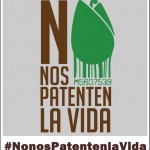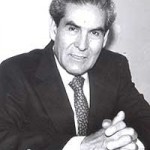Our first meeting was June 20, 2012. What follows is a brief summary.
Here are our future plans:
* Our next meeting will be July 18th, 2-4pm, Liu Institute Board Room. The reading will be a chapter from Mabel Moraña et. al. (eds.), Coloniality at Large. Dawn will pick the particular essay, and circulate it to us all.
* Our subsequent meeting will be August 15th, 2-4pm, Liu Institute Board Room. The reading will be Roberto Schwarz, “Misplaced Ideas: Literature and Society in Late-Nineteenth-Century Brazil.” I will scan the essay and circulate it.
* Tal suggested we take a field trip to the “Carnaval del Sol” this weekend (June 30th) downtown.
We shared our interests and ideas. Here are my brief and inevitably incomplete notes:
* flows of ideas, money, and people in and out of Latin America
* what’s happening in Vancouver?
* mining and the Canadian connection
* indigenous rights
* how can we interact with the broader community?
* cinema. What about a movie series?
* decolonialism and coloniality
* the Americas, and how and why Latin American studies are delimited
* colonialism in Canada
* mining. Capital flows
* embededness. Translocality and the relationship between what happens in Latin America and elsewhere
* transnational dialogues
* theory, more than specific cases
* how do we locate our work? Between Latin America and elsewhere
* Mignolo
* posthegemony
* performance art and social movements
* deconstructing Latin America though artistic practice
* theoretical debates, rather than case studies
* human rights discourse
* feminisms, performances
* dependency theory (Wallerstein)
To which Tal adds:
* legality and human rights discourses
* urban settings as bridging between the rural and global (or transnational?)
* performance as/and activism
* feminism and sexuality
* the consumption of LA – Mining, literature, art, football, coffee, sugar, bananas and so on..
* Barndt, Deborah (ed), Wild Fire: Art as Activism. Toronto, ON, CAN: Sumach Press.
Other readings suggested included:
* Walter Mignolo, something from The Idea of Latin America
* Michael Taussig, something from The Devil and Commodity Fetishism
* Sidney Mintz, something from Sweetness and Power
I think that our conclusions were:
a) we would start as a reading group, reading a chapter or essay (sometimes two) a month
b) we would mix theoretical readings with diverse case studies
c) we were interested in the Latin American community, or expressions of “latinidad” in Vancouver
d) we were also interested later on in sharing our writing
e) we would start a blog as one way to enable people out of town to interact with the group
Again, thanks to everyone. I look forward to hearing from Dawn about our first reading, and look forward to seeing you all in July.







